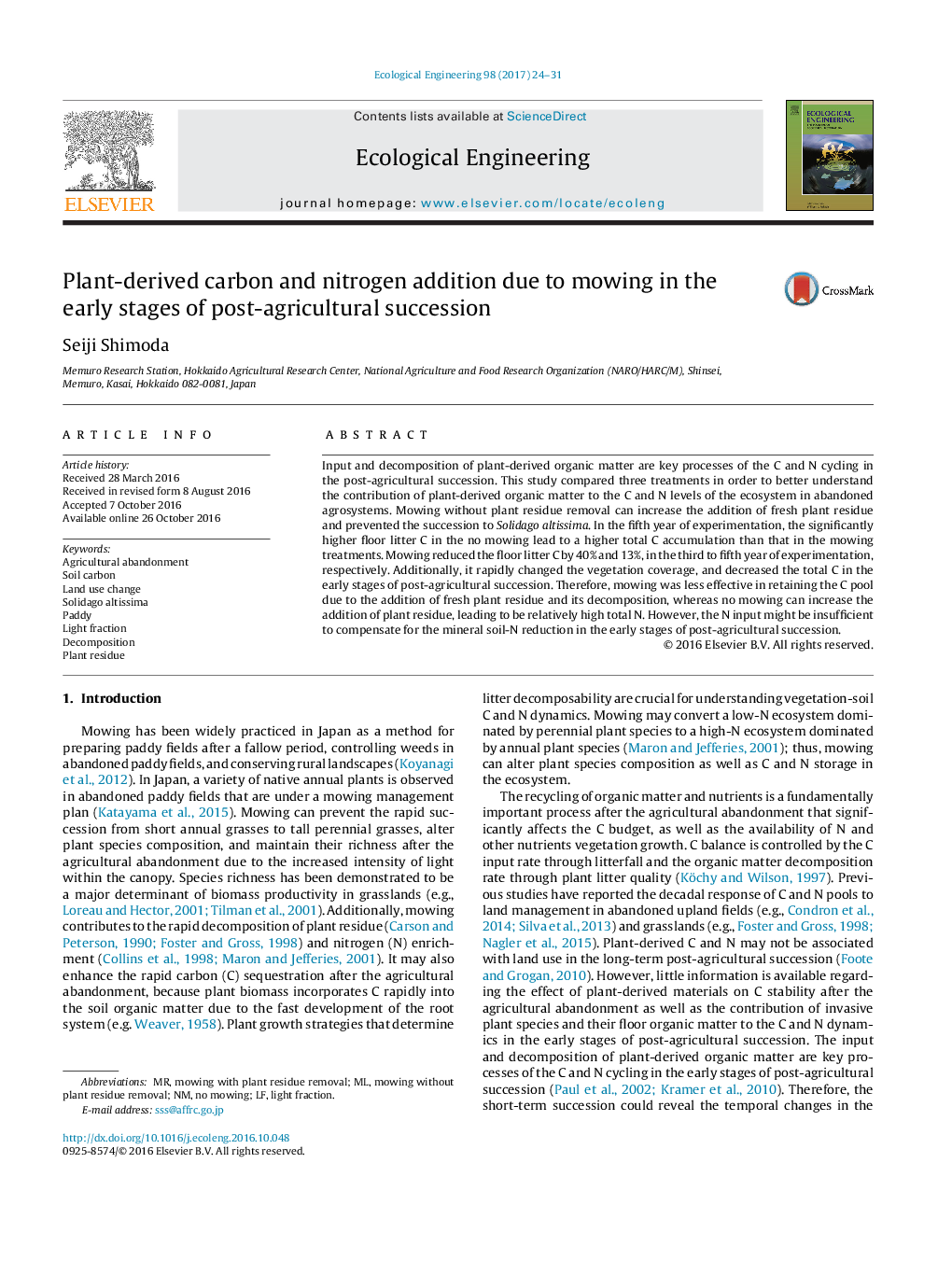| Article ID | Journal | Published Year | Pages | File Type |
|---|---|---|---|---|
| 5744050 | Ecological Engineering | 2017 | 8 Pages |
Input and decomposition of plant-derived organic matter are key processes of the C and N cycling in the post-agricultural succession. This study compared three treatments in order to better understand the contribution of plant-derived organic matter to the C and N levels of the ecosystem in abandoned agrosystems. Mowing without plant residue removal can increase the addition of fresh plant residue and prevented the succession to Solidago altissima. In the fifth year of experimentation, the significantly higher floor litter C in the no mowing lead to a higher total C accumulation than that in the mowing treatments. Mowing reduced the floor litter C by 40% and 13%, in the third to fifth year of experimentation, respectively. Additionally, it rapidly changed the vegetation coverage, and decreased the total C in the early stages of post-agricultural succession. Therefore, mowing was less effective in retaining the C pool due to the addition of fresh plant residue and its decomposition, whereas no mowing can increase the addition of plant residue, leading to be relatively high total N. However, the N input might be insufficient to compensate for the mineral soil-N reduction in the early stages of post-agricultural succession.
